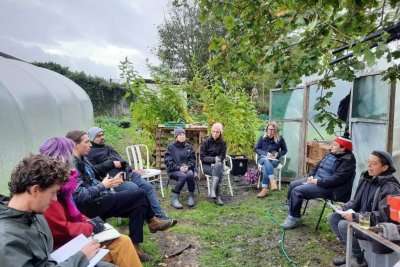New Community Garden Group to explore the role of urban food gardens for climate, nature and people
Capital Growth, London's largest food growing network, invites community gardens to take part in a series of workshops this spring to define what a climate and nature friendly garden means to them.

Part of a longer term project funded by the City Bridge Trust about the role of urban food gardens in tacking the climate and nature emergency and creating community resilience, 15-20 garden members from food growing spaces across London will come together to co-create a new Community Garden Group.
Hosted by Capital Growth, participants of the group will participate in a series of three workshops to explore the different characteristics of a climate and nature friendly food garden. The process will result in a set of co-produced guidelines and framework to help other food growers and gardens make the case for why their spaces are essential for our cities to combat climate change and foster community, and why we must do everything we can to protect them.
The half-day afternoon workshops will take place at Calthorpe Community Garden in central London on:
- Monday 7 March
- Monday 28 March
- Monday 25 April
Free lunch will be provided at the workshops and a series of perks including free training will be available for all participants.
Anyone that wants to take part needs to complete the Community Garden Group interest registration form by Friday 25 February. More information about the process and the benefits involved can be found on the form. Alternatively, people can nominate a garden they think should take part by emailing capitalgrowth@sustainweb.org.
Complete the registration form
02/02/2022
Support our work
Your donation will help communities grow more food in gardens across London.
Capital Growth is a project of Sustain: the alliance for better food and farming.
Expert food growers wanted for Capital Growth’s 2025 training program
Celebrate the abundance in London this September with Urban Harvest
Behind the garden gate: how London’s food gardens are producing much more than just food




